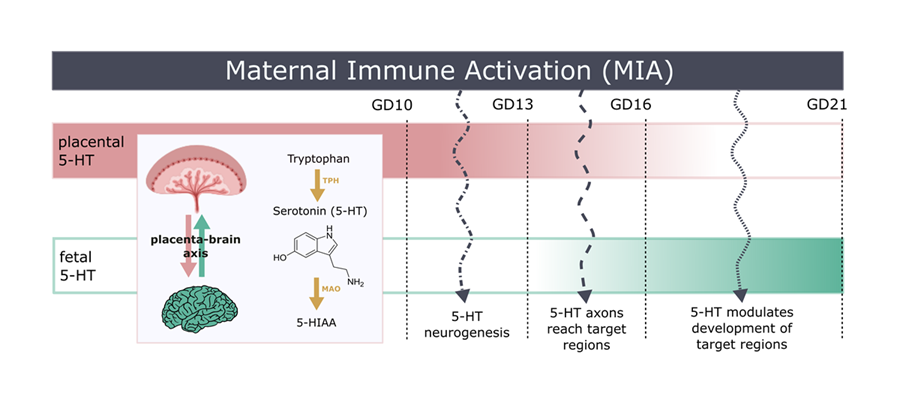Maternal immune activation occurs in ca. 20% of all pregnancies, and epidemiological data and the results of animal research clearly indicate an association with increased risks of neurodevelopmental and psychiatric disorders in offspring, including autism spectrum disorders, cognitive delay, and schizophrenia. However, the underlying cellular and molecular mechanisms have not been fully elucidated. Recent research indicates that inflammatory cytokines (e.g. interferon gamma and interleukin 6) may regulate the expression and activity of key enzymes involved in serotonin homeostasis in the placenta-brain axis, and hence interfere with fetal brain development and programming. Thus, in this project we aim to clarify links between maternal immune activation, serotonin homeostasis in the fetoplacental unit, and infant neurodevelopment, thereby identifying potential avenues for addressing neurological
disorders in utero.

Using a wide range of prenatal and postnatal experimental approaches, we aim to identify links between maternal immune activation, serotonin homeostasis in the fetoplacental unit, and fetal neurodevelopment; the timing of inflammation and fetal sex will be considered as covariates.
This project recently recieved funding from the Grant Agency of the Czech Republic (grant no. 22-08045S)